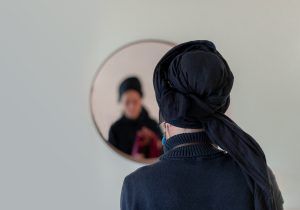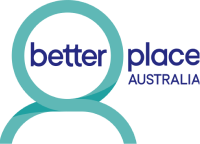Overcoming thoughts of self-harm – (BPA case study and podcast)

*Amira is an Iranian single mother of a nine-year old daughter. During the COVID lockdowns, her 25-year-old nephew moved in with her. Last year, he overdosed on sleeping pills and she discovered his body in his room.
The incident sparked nightmares for Amira and irrational fears for her daughter’s wellbeing. On top of that, her nephew’s family blamed her for his death and she became the topic of conversation within the local Iranian community. Feeling shunned and judged, Amira began isolating at home. When she couldn’t face going to work, she quit her job.
Amira’s past trauma and new financial stress led to suicidal ideation and a suicide attempt. Amira presented with severe guilt, grief, depression and PTSD. Desperate to overcome her mental anguish, she consented to being referred to the HOPE Outreach Program.
The first meeting between Amira and the Hope coordinator took place in Amira’s house as she was still uncomfortable leaving her home. The experienced coordinator provided a safe and non-judgemental space for Amira to fully express her thoughts and emotions. After that session, the coordinator took the following steps: Mental health support.
Amira was referred to the South Eastern Melbourne Primary Health Network (SEMPHN) where she was linked with a psychologist and given a list of support groups. The coordinator contacted her daughter’s school to ensure she was receiving proper support and encouraged Amira to get a mental health care plan from her daughter’s GP so she could access Headspace for more support.
The coordinator suggested Amira speak to her GP about alternative medication for her depression. The coordinator also supported Amira in her financial crisis, approaching her utility companies and bank to discuss payment plans. Amira was given information on access to financial aid within her community.
The coordinator helped Amira obtain a copy of the police report of her nephew’s death for his family in Iran. Through a referral to a mental health support service, Amira attended counselling sessions with a psychologist where she learned strategies for dealing with the perceived stigma in her community. This helped build her confidence and made it possible for her to return to work in a part time capacity.
Amira successfully negotiated payment plans with her utility providers and bank, and also received the $250 government electricity rebate based on her part time work. She has ceased contact with family who blame her for her nephew’s death and has started grief counselling. She’s also met her GP to discuss alternative depression medication.
Amira hasn’t had any further suicidal ideations. Her eating and sleeping habits have also improved, and this has helped her cultivate a more optimistic outlook on life. Amira’s daughter is receiving ongoing support with her own grief and is progressing well.
Amira told us, “I’m so grateful to HOPE for the crucial support during a very dark time. It helped me heal and move on to a more positive stage in life.”
*Deidentified
PODCAST: Listen to Dr Rachel Bonnici from the Centre for Better Relationships share what the Hope Outreach Program is and how it helps those with suicidal ideation. Click here


Dr Rachel Bonnici


